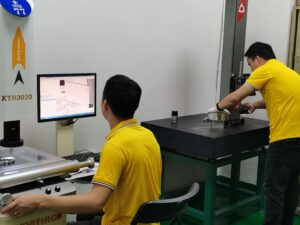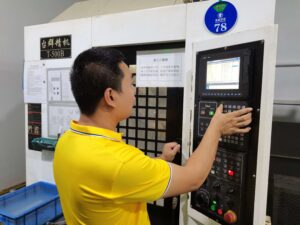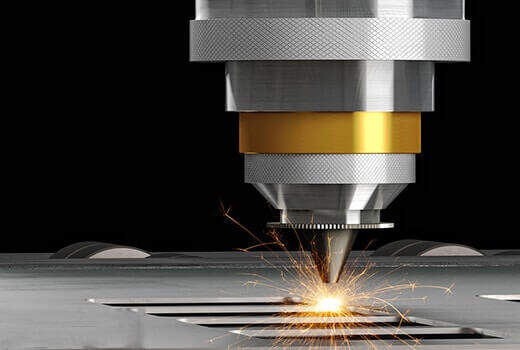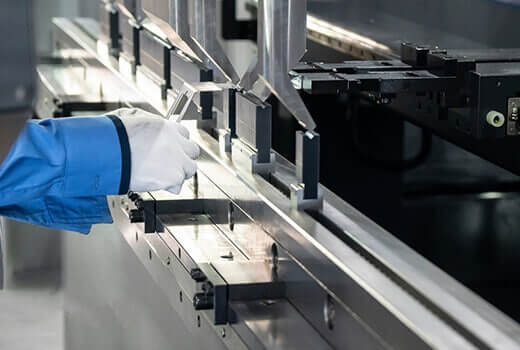Sheet Metal Fabrication Services
1 off prototyping & 1000+ production parts
online metals and bending service to produce durable and end-use metal parts
Custom Sheet Metal Fabrication Services - Rapid Sheet Metal Prototyping and Production
HRC Metal employs sheet metal technology to bend, punch, and cut standard gauge metals metal roofing for both rapid prototypes and low to high-volume production runs. What set us apart from other conventional sheet metal shops is our incredible capacity and proficiency in sheet metal manufacturing of end-use and durable metal parts or components coupled with broad material selections and finishes matching your needs.
From production, surface treatment, assembly to final shipment, HRC Metal always allows you to track your order. And we focus on model design, user experience, and every detail and matter at every stage of production. In order to help global product developers, designers, and manufacturers seize more opportunities in the marketplace, we do our best to shorten the cycle time and ensure on-time delivery to help their products get to market quickly – whether it’s a single prototype or 1,000 pieces in bulk.
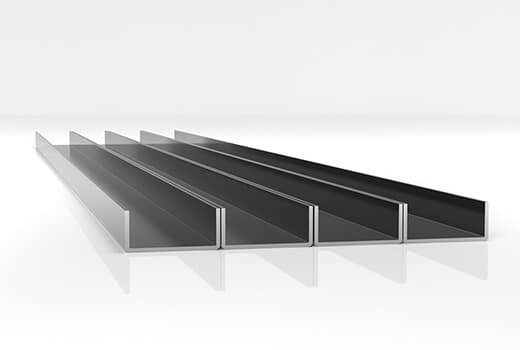
What Is the Sheet Metal Fabrication?
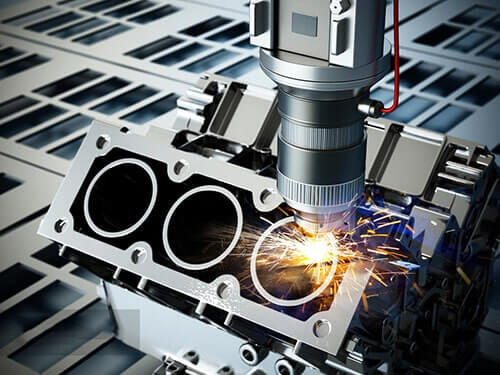
Sheet metal fabrication is a subtractive manufacturing process involving forming parts from thin metal sheets by cutting, bending, folding, punching, and assembling. Sheet metal can be cut, bent, or stretched into almost any shape, usually by cutting and burning the metal. Sheet metal parts are usually highly precise and durable, making them particularly preferred by engineers to use for end-use applications such as enclosures, brackets, and chassis.
If you rightly have demands on custom sheet metal fabrication or outsourcing manufacturing of your sheet metal parts to a reliable supplier in China, HRC Metal may be your premier choice. You have access to get in touch with our team of knowledgeable engineers and machinists to get a fast and cost-effective solution for any kind of parts.
How Does Sheet Metal Fabrication Work?
The sheet metal fabrication processes start with removing materials from thin sheet metal stock placed on a flat bed following programmed part patterns to form desired shapes by cutting tools. This operation can be finished with a variety of subtractive machining processes. A sheet metal punch, shear, laser, waterjet, or plasma can generate additional features such as internal holes and edge features according to the part geometry. The second stage is material deformation. After being cut, the parts reach the press brake where they are formed into the final geometries with the forming process such as bending. The last stage is to assemble pieces of sheet metal or fit them together with other components that are not made from sheet metal into a complete product. In many cases, surface finishing operations are needed to enhance mechanical properties.
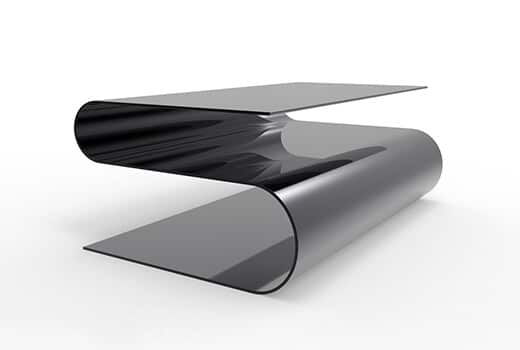
How Does Sheet Metal Fabrication Work?
The sheet metal fabrication process is the most cost-effective choice for on demand production of sheet metal parts and prototypes with uniform wall thickness.
- High durability, malleability, and pressures tolerance for prototyping or end use
- Lower prices and shorter cycle time due to reduced tooling time and setup costs
- Cost-effectively scale to low or high production quantities
- A wide variety of gauges available in laser cutting or bending
- Enhanced construction quality and low maintenance cost and frequency
- Low material waste and sheet metal parts are recyclable
- Great tolerance to moisture, corrosion, and ultraviolet
- High machinability to easily machined into almost any expected shape
Metal Fabrication Processes Available at HRC Metal
Thin metal sheets, such as aluminum sheet metal and metal sheets in general, are highly malleable compared to thick workpieces. This malleability allows them to be easily manipulated through various processes like laser cutting, which is one of the services HRC Metal offers. HRC Metal provides not only laser cutting but also a wide range of other services including bending, punching, welding, and assembly services. For those in need of metal fabrication, whether it’s steel fabrication or general metal fabrication, HRC Metal is a great option. They offer high precision cutting, ensuring top – quality results. If you’re looking for metal roofing materials or other metal products, they can be of assistance. When it comes to sourcing materials, terms like online metals, metal supply, and metal store near me are relevant. Galvanized steel is also among the materials that might be available. For those searching for sheet metal near me or metal fabricators near me, HRC Metal can be a convenient choice, especially considering they offer services for both low – volume prototypes at competitive prices and cost – effective solutions for high – volume production runs. Their laser cutting service is particularly useful for creating intricate designs on metal sheets.
Sheet Metal Materials Available at HRC Metal
There is a multitude of material metal supply available for sheet metal fabrication. Here are the materials commonly used for sheet metal fabrication. Aluminum is one of the popular materials used for sheet metal manufacturing and its four most common grades are especially suited as sheet metal, that is, 3003-H14, 5052-H32, 6061-T6, and 1100-H14. Stainless steel grade 304 is an ideal option to fabricate sheet metal because of its great weldability, formability, and corrosion tolerance. Grade 316 is recommended when your applications are marine products, valves, pumps, or chemical equipment. For brass, it has high formability, strength, corrosion resistance, and conductivity, so it’s also a perfect material used in the sheet metal fabrication process.
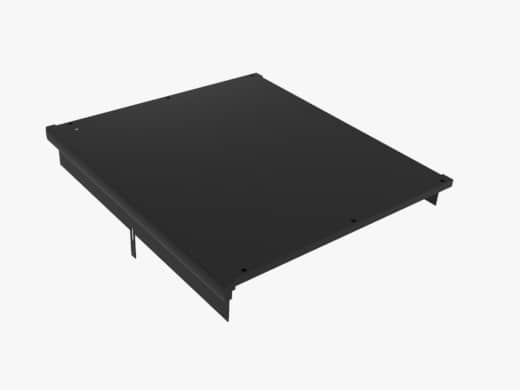
Aluminum
Aluminum 6061
Aluminum 5052
Stainless Steel
Stainless steel 301
Stainless steel 304
Stainless steel 316/316L
Learn More Details About Stainless Steel
Steel
Low carbon steel, SPCC
Brass
Copper 101
Copper C110
Copper 260 (Brass)
Learn More Details About Brass
Sheet Metal FAQs
What is the sheet metal fabrication?
Sheet metal fabrication is the manufacturing process of shaping flat metal sheets into desired structures or products through material removal, material deformation, and assembly. Sheet metal can be cut, bent, or stretched into almost any shape, usually by cutting and burning the metal.
Which processes should I choose to fabricate my sheet metal?
The selection of the cutting machine is determined by the gauge of the sheet and the material used, along with other key elements like delivery, tolerances, and geometric complexity as expected. You don’t have to figure out the type of cutting machine suiting your sheet metal as our experts clearly know what kind of equipment, technology, and even materials are best suitable for your project. Thus, just submit your 3D files online and get a professional solution from our experts in fabricating sheet metal quickly.
Is it more expensive when using multiple sheet metal forming processes?
Generally, the cost of using just a single cutting machine such as a laser cutter to cut a part will spend less than that of multiple forming processes, for instance, cutting, bending, and punching. But most sheet metal parts need to be machined with a combination of different forming processes, and the per-unit costs will reduce by large-volume quantities.
What are the tolerances for fabricated parts?
The tolerances of sheet metal fabrication are decided by the features and dimensional details of sheet metal parts necessary for consistent and precise integration and installation.
To ensure the accurate control of the variables affecting the part precision and manufacturability, our custom sheet metal fabrication services are in accordance with the ISO 2768-mk.
What’s K factor in sheet metal?
The K factor in the sheet metal process is the ratio of the neutral axis to the thickness of the material. This value varies with various physical properties and the thickness of the material used.
How much does sheet metal fabrication cost?
The costs of sheet metal fabricated parts or products depend in every respect including the design, geometric complexity, forming processes, surface finishing operations, and more. Besides these crucial factors, the material costs should be also considered.
Our quote online will include all of these factors and even variables in line with the manufacturability of sheet parts, so request a quote to get started with your project right now.
Put your parts
into production today
All information and uploads are secure and confidential.



